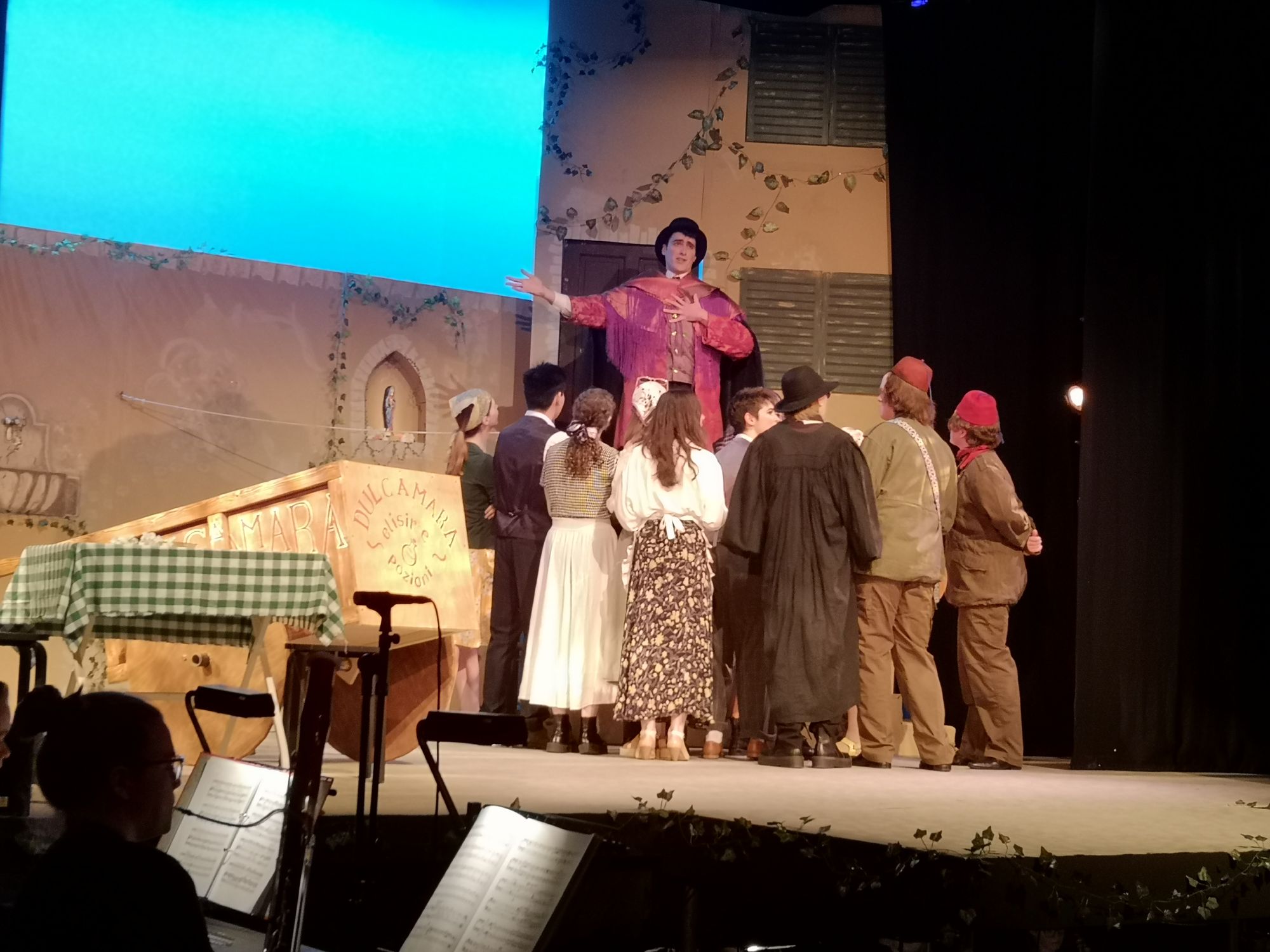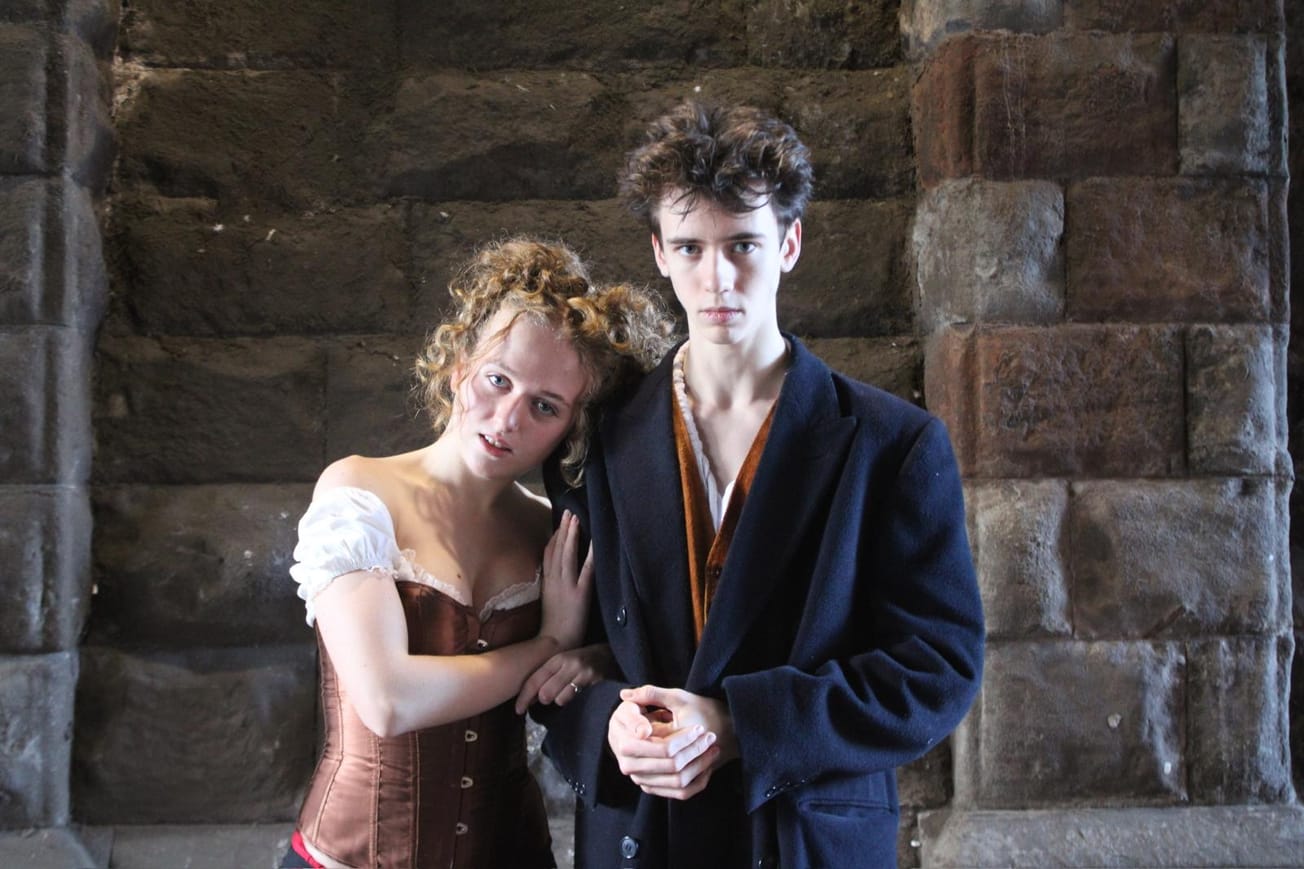By Milan Perera, Arts Critic Columnist
The legendary operatic bass-baritone Sir Bryn Terfel once mused that The Elixir of Love ‘may be the best opera that has ever been written!’ It is not difficult to see the reasons behind such an emphatic pronouncement. What is not to like about it? Vocal fireworks, heart-warming story line, unexpected twists and turns, sensuous melodies and deadpan humour form a winning formula for an opera for all seasons.
Such was the weight of expectations when producing an opera of such delight and repute. But University of Bristol Operatic Society (BOpS) rose to the challenge with aplomb and provided a scintillating rendition of this operatic masterpiece that made the stands smile.
The story revolves around Nemorino, a young, hired hand who is madly in love with the wealthy landowner Adina. The latter is charming and kind, except to Nemorino, for whom she displays a thinly veiled contempt. Then comes Doctor Dulcamara, a quack doctor with his spurious collection of concoctions which promises remedies for all ailments. Nemorino approaches the quack doctor with all his life savings and and asks for an elixir that would make Adina fall in love with him. Instead of providing an elixir, Doctor Dulcamara seems to provide him with a bottle of cheap table wine.

Instead of getting drunk with love, Nemorino simply just gets drunk and becomes the laughingstock of the village. And then there is the Sergeant Belcore who bursts into the scene with his entourage. He is not shy when it comes to displaying his power and influence. But his most redoubtable passion is for Adina who he is trying to impress. Is it all over for Nemorino? Can he wake up from his drunken slumber and declare how he feels about Adina and win her over?
Director Walter Hall’s bold and brilliant vision for the 19th century opera augments the comedic elements of the original opera and provides them with a gleaming veneer. He transposes the scene to post-WWII Italy in 1950s where he manages to capture the burgeoning optimism of the post-war period. The production radiates freshness, effervescence and sunburst landscapes of Italy. In order to execute this vision, the set and costume designs of Io Limmer proved pivotal. The set is both detailed and authentic in creating a time capsule which features a fountain, sun-kissed outdoors, a shrine to the Blessed Virgin and lush foliage.
The brilliant cast never set a foot wrong in their mercurial rendition of this evergreen opera, which was a powerful testament to their artistic convictions and abilities. James Ward is no stranger to playing imperious roles, but in The Elixir of Love, the audiences had the rare opportunity to catch glimpse of Ward’s comedic skills as Doctor Dulcamara. When he appeared on the stage with his travelling dispensary of remedies, clad in purple and red, much akin to a Catholic priest on Corpus Christi Day, the audience could not help but burst out laughing. Ward managed to capture the wit and wisdom of Doctor Dulcamara with a hint of cynicism and deadpan humour which generated peals of laughter and cheers from the audience.

Sandhilen Ramen shone in the role of Sergeant Belcore where he managed to capture the idiosyncrasies of the ‘villain’ of the opera with composure. His facial expressions and well-timed pauses added to his fine rendition. It is worth noting that his entourage, consisting of Stephen Murphy, Sean Shui and Io Limmer, brought added warmth and effervescence to the set along with the effortless comedic timing of Bill Dryburgh as the priest.
Maja Higgins was magisterial in the role of Adina where she infused both charm and pride to perfection a create a realistic portrayal of the wealthy landowner who spurns the advances of a hired hand. It was sassy, sensational and supremely well-rounded, and furthermore, she executed those technically demanding coloratura lines with ease.
Anthony Roberts was every inch the ideal Nemorino, giving a scintillating performance in the titular character. He was the love-sick whelp who sings of his romantic ardour as in the heartfelt rendition of ‘One furtive tear’ or ‘Una furtiva lagrima’. His delivery was lucid, strong and forthright with a fine stage presence.

The portrayal of Gianetta by Nel Willmer was warm and empathetic, while the rest of the cast, though not featured in the primary roles, sang their hearts out. There was a neatly orchestrated bustle on the stage that provided the final sheen to this fine production.
The orchestral accompaniment under the baton of Sam Kail-Dyke was luscious and fluid. There were a couple of occasions where the singers were slightly drowned out by the wall of sound, but being the capable performers, they quickly regained the vertical with slick adjustments.
Speaking exclusively to Epigram, the director Walter Hall pointed out that: ‘The Elixir of Love is a romantic classical opera by Donizetti. It’s an operatic rom-com. It’s funny. It’s passionate. It’s a gorgeous story with incredible music. It’s emotionally evocative and evocative of the world in which it was set. We set this production in 1950s, just after the War in a little town in Italy… I also thought that the character of Dulcamara who peddles fake portions would tie in well with the dawn of consumerism in the 50s and 60s.’
The standing ovation at the curtain call was no doubt a seal of approval from a thoroughly entertained audience.
Featured Image: Courtesy of Milan Perera








